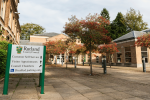Children get one shot at an education. Countless studies have shown that just one day lost in the classroom can have a lasting, negative effect on young people’s ability to achieve their potential in life. And lockdowns have robbed our children of countless days of opportunity.
We have watched as the attainment gap between children in rich and poor families has widened, undermining the incredible work of the last decade. Remote learning has failed our children, too. For too many, the classroom was replaced during lockdown by a weekly email with links to BBC Bitesize exercises. The efficacy of such exercises depends on the expertise of teachers who use these materials to support their teaching. It is unrealistic to ask parents to replicate the expertise of teachers, let alone while trying to maintain full- or part-time work.
We’ve also all heard stories that tear at our hearts: of too many children neglected and abused during lockdown. Worse still have been the horrors that have led to the deaths of young children. The Health Secretary, Sajid Javid, knows full well these costs of lockdown from his important work on tackling child sex abuse as a backbencher, and how schools provide a vital safety-net.
It is unthinkable that a country that has given two vaccines to eight in 10 people over the age of 12 – not to mention millions of booster jabs – would consider closing school doors again. Indeed, it is our national duty to keep classrooms staffed and open. That is why I am backing the Telegraph’s important campaign aiming to do just that.
The calls to close schools once again have already begun. They are not justified – and the Education Secretary is rightly standing steadfast and doing all he can to prevent closures.
Decisions of such enormity must be made on the basis of consequences, not cases. All the evidence so far suggests that the omicron variant is highly transmissible, and is therefore driving up cases, but its consequences are manifestly less severe, not least thanks to our vaccine and booster programmes. The variant may well prove to be a turning point, as Covid moves from pandemic to endemic.
Hospitalisations are being driven disproportionately by the unvaccinated. It would be heinous to isolate our children from social interaction and limit their opportunities just because some people choose not to get jabbed or because of the situation in London.
High cases of omicron are, however, forcing large numbers of people into isolation, and that has a very real impact on the capacity of schools to function. So I welcome the decision by the Health Secretary to reduce the isolation period from ten to seven days, alongside the Education Secretary calling for non-practising teachers to return to the classroom.
But I want to see our country go further to keep our schools open.
To use a military analogy, it’s time to call in the reserves. We need to call up current and former teaching assistants, educational support staff, and PGCE students across the country. They should be given more responsibility so that they can work alongside practising teachers to keep our schools afloat.
We also need to give our headteachers greater freedom to temporarily adapt the curriculum and engage with local communities, if they are facing shortages of teaching staff.
Let’s bring our amazing community institutions into our schools – whether it be local football coaches for an afternoon, community choirs, mental health experts, or, and now I hear you groan, mock parliamentary debates with MPs. Our communities are full of experts (many with DBS clearance), ready to step forward and more than capable of inspiring large groups of our young people for a few hours.
I am not arguing for the academic curriculum to be diluted. What teachers do requires high quality skills and training. But on an emergency basis, the Department for Education must allow headteachers to temporarily lessen the pressures of the curriculum. Now is also the time to postpone inspections, not least when inspectors provide a good source of reserve teachers. We need to make sure the next few months are ones where schools help students get back on their feet, in every sense, not just academically.
Teachers are key workers, and we need them in their posts at the front of the classroom to protect our children’s todays and their tomorrows. The vast majority of teachers have also been vaccinated, and we know schools are not necessarily high-transmission environments.
The vaccine programme is doing its job, so let us unite around a national mission and mandate that schools won’t close their doors. Anything less, and our children will be failed all over again.
This article originally appeared in the Daily Telegraph on 31st December 2021


